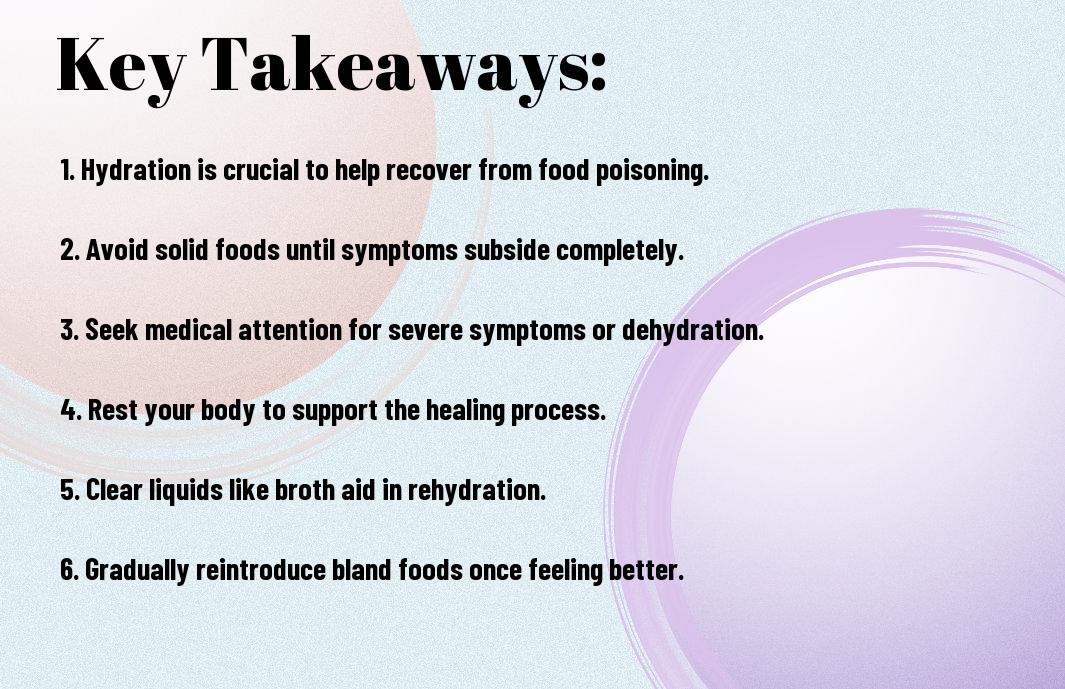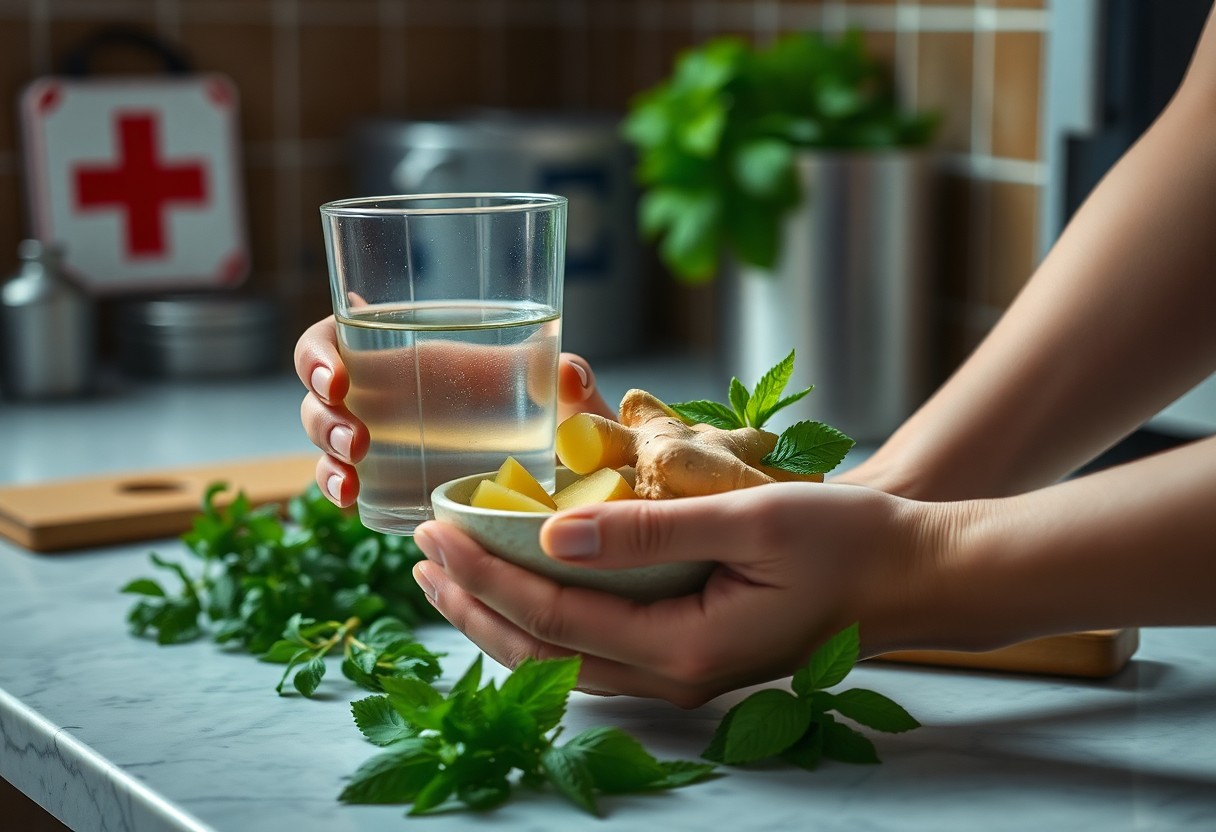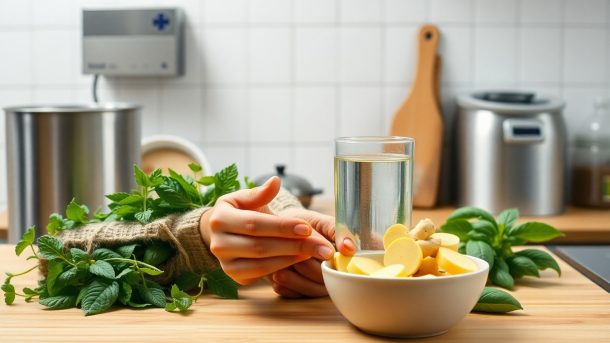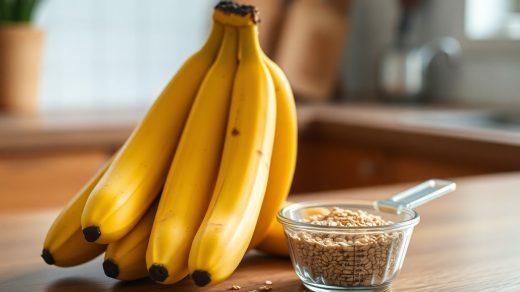Most people experience food poisoning at some point and often wonder if they can flush it out of their system quickly. While hydration is vital, understanding the proper steps to alleviate symptoms is key. You might consider various remedies and strategies to support your recovery. However, knowing when to seek medical help is also important. In this post, we will explore effective methods to manage food poisoning and help you feel better faster.
Key Takeaways:
- Hydration: Staying hydrated is vital for recovering from food poisoning, as it helps flush toxins from your system.
- Avoiding Solid Foods: It’s recommended to avoid solid foods initially to give your digestive system time to recover.
- Seek Medical Attention: If symptoms persist or worsen, consulting a healthcare professional is important for proper treatment.
Understanding Food Poisoning
Your body may react severely to contaminated food or beverages, leading to food poisoning. This condition can arise from bacteria, viruses, or parasites lurking in improperly handled or cooked items, often resulting in uncomfortable gastrointestinal symptoms. It’s vital to understand its origins and effects to protect yourself and others from its potential dangers.
Common Causes
On many occasions, food poisoning stems from consuming undercooked meat, unpasteurized dairy products, or contaminated produce. Cross-contamination in kitchens can also play a significant role, where clean food comes into contact with harmful pathogens found on surfaces or utensils. Following safe food handling practices is important to reduce your risk.
Symptoms to Watch For
Across various cases of food poisoning, symptoms like nausea, vomiting, diarrhea, and abdominal cramps may arise within hours to days after consuming contaminated food. While most individuals recover without treatment, it’s important to be aware of worsening conditions, which may require medical intervention.
Hence, it is important to take note of any symptoms that persist or intensify as they may signify a more severe infection. You should be particularly vigilant for symptoms such as high fever, prolonged diarrhea, or blood in the stool, as these may indicate a need for professional healthcare. Staying alert to these signs can help you manage your recovery effectively.


The Body’s Natural Defense
Some of the body’s natural defenses play an vital role in combating food poisoning. When faced with harmful pathogens, your immune system activates to flush out toxins and protect you from further illness. Supporting your body during this process is vital, and you can learn about How To Recover From Food Poisoning Fast to aid your recovery.
How the Body Flushes Out Toxins
Bodys’ first line of defense against food poisoning includes vomiting, diarrhea, and increased sweating, which help remove harmful substances. These mechanisms are your body’s way of expelling toxins and pathogens. It’s important to listen to your body as it works to restore balance.
The Role of Hydration
Toxins can lead to dehydration, especially if you’re experiencing vomiting or diarrhea. Maintaining hydration helps your body effectively eliminate these toxic substances. Drinking water or oral rehydration solutions is vital to support your recovery and prevent further complications.
At a time when your body is battling food poisoning, staying hydrated can significantly impact your recovery. Fluid intake not only aids in flushing out toxins but also replenishes what you may have lost through illness. Aim to drink clear fluids regularly to stabilize your body’s functions and facilitate a quicker healing process.
Home Remedies
Despite the discomfort that comes with food poisoning, there are several home remedies you can explore to alleviate your symptoms. Simple approaches, such as staying hydrated and resting, can significantly aid your recovery. However, it’s crucial to monitor your symptoms closely and seek medical attention if they worsen or persist, as some cases may require professional intervention.
Fluids and Electrolytes
Among the key strategies to combat food poisoning is replenishing fluids and electrolytes. Staying hydrated can help replace the fluids lost through vomiting or diarrhea. You can drink water, broth, or electrolyte solutions to maintain hydration levels and support your body as it fights off the infection.
Foods to Avoid
Avoid certain foods that can further irritate your digestive system during recovery from food poisoning. Fatty, spicy, or heavily processed foods can exacerbate symptoms and prolong your discomfort. Opting for bland, easily digestible foods can help soothe your stomach while allowing your body to heal.
In fact, you should steer clear of dairy products, caffeine, and alcohol as they can worsen symptoms and slow down recovery. Sugary foods can also upset your stomach, leading to more discomfort. Focus on bland options, such as toast, rice, bananas, and applesauce, to provide your body with the crucial nutrients it needs without adding stress to your digestive system.
When to Seek Medical Attention
After experiencing symptoms of food poisoning, it is important to assess the severity of your condition. If you find that your symptoms persist for more than 48 hours, or if you are unable to keep fluids down due to vomiting or diarrhea, it may be time to seek medical attention. Additionally, if you notice any signs of dehydration or if your symptoms worsen, contact a healthcare professional for guidance and support.
Warning Signs
An urgent indication that you should seek medical help is when you experience high fever, severe abdominal pain, or blood in your stool. These symptoms can signify a more serious infection that requires immediate medical intervention. Additionally, if you are experiencing dizziness or confusion, these could be signs of dehydration that may warrant prompt attention from a healthcare provider.
Medical Treatments Available
For food poisoning, a healthcare professional may recommend various treatments depending on your symptoms and their severity. You could be advised to stay hydrated and might be provided with electrolyte drinks to replenish fluids lost. In some cases, specific medications may be prescribed to alleviate severe symptoms, or if a bacterial infection is identified, antibiotics may be necessary.
And, if your condition is more serious, hospitalization may be required to ensure you receive intravenous (IV) fluids and more intensive care. Additionally, healthcare providers can monitor your symptoms and provide treatments that are tailored to the type of food poisoning affecting you. Taking prompt action can help prevent complications and promote a faster recovery.
Prevention Strategies
All food poisoning can often be avoided by implementing effective prevention strategies. Incorporating safe food handling practices and adhering to guidelines when dining out are imperative steps you can take. By being proactive about food safety, you can minimize your risk of experiencing unpleasant symptoms associated with foodborne illnesses.
Safe Food Handling
Besides understanding the importance of proper cooking temperatures, you should also prioritize cleanliness in your kitchen. Always wash your hands, utensils, and surfaces thoroughly before preparing food. Make sure to separate raw and cooked foods to prevent cross-contamination, and store food properly to keep it fresh and safe for consumption.
Guidelines for Eating Out
Around dining establishments, it’s wise to be vigilant about food safety practices. Check for cleanliness and look for signs of poor hygiene among staff. Opt for restaurants that prioritize food safety, and don’t hesitate to ask questions about their food preparation practices. Your vigilance can help ensure a safe dining experience.
To further safeguard your health when eating out, choose restaurants with a good reputation based on reviews and ratings. Pay attention to how the staff handle food and whether they follow proper hygiene practices. If possible, look for establishments that provide transparent information regarding their sourcing and preparation methods. This proactive approach will enhance your dining experience while minimizing the risk of foodborne illnesses.
Myths and Facts
Keep in mind that there are numerous myths surrounding food poisoning. Many people believe that simply drinking fluids or taking certain medications can flush the toxins from your system, but this is often misleading. It’s crucial to understand the nature of foodborne illnesses and how your body reacts to them.
Common Misbeliefs About Food Poisoning
About 50% of people think that they can rid their bodies of food poisoning by inducing vomiting or excessive hydration alone. While staying hydrated is important, it does not eliminate the bacteria or toxins causing the illness.
Evidence-Based Truths
Across various studies, experts agree that the best approach to managing food poisoning involves patient care rather than just self-treatment. While hydration is vital, recovery often requires letting the illness run its course.
Also, medical professionals recommend resting and allowing your body to naturally eliminate toxins. Drinking plenty of fluids helps replenish lost electrolytes, but it’s not a cure. In severe cases, seeking medical attention may be necessary, especially if symptoms persist or worsen. Understanding these truths can guide your recovery and ensure you take the right steps following a bout of food poisoning.
Summing up
Following this, it’s important to understand that flushing out food poisoning typically involves staying hydrated and allowing your body to recover naturally. You should focus on drinking clear fluids and resting your digestive system. While you might experience discomfort, your body generally knows how to handle foodborne illness. If symptoms persist or worsen, consulting a healthcare professional is advisable to ensure appropriate care. Your health is paramount, so taking these steps can help you manage the situation effectively.
FAQ
Q: Can I flush out food poisoning by drinking water?
A: Staying hydrated is important if you suspect you have food poisoning, as it helps prevent dehydration caused by vomiting or diarrhea. Drinking water can help flush out toxins from your system. However, while hydration is beneficial, it won’t eliminate the bacteria or toxins that may be causing your symptoms. It’s advisable to drink clear fluids, such as water or electrolyte solutions, rather than overly sugary or caffeinated drinks.
Q: Are there specific foods or drinks that can help flush out food poisoning?
A: Certain foods and fluids can support recovery from food poisoning. Clear broths, ginger tea, and herbal teas can soothe the stomach. Foods like bananas, rice, applesauce, and toast (often referred to as the BRAT diet) are bland and easier to digest while providing necessary nutrients. These options do not flush out toxins, but they may aid recovery by being gentle on your digestive system.
Q: How long does food poisoning last, and when should I seek medical attention?
A: The duration of food poisoning varies depending on the cause, but symptoms typically last from a few hours to several days. You should seek medical attention if you experience severe symptoms such as high fever, prolonged vomiting, blood in your stools, signs of dehydration (like dizziness or a decrease in urination), or if symptoms persist beyond a few days. Early medical intervention can provide appropriate treatment and help prevent complications.
Q: Can over-the-counter medications help with food poisoning?
A: Over-the-counter medications like loperamide (Imodium) may help control diarrhea, while antacids may relieve stomach discomfort. However, it is often best to allow your body to expel the toxins naturally without suppressing symptoms. It’s wise to consult with a healthcare professional before taking any medications, especially if you have severe symptoms.
Q: Is it possible to completely detoxify after food poisoning?
A: The body has natural mechanisms for detoxification, primarily involving the liver and kidneys. While you cannot completely flush out food poisoning in the conventional sense, your body will typically eliminate harmful bacteria or toxins over time. Focusing on hydration, rest, and a balanced diet can support your body’s recovery process. If symptoms persist, consult a healthcare provider for personalized advice and treatment.



